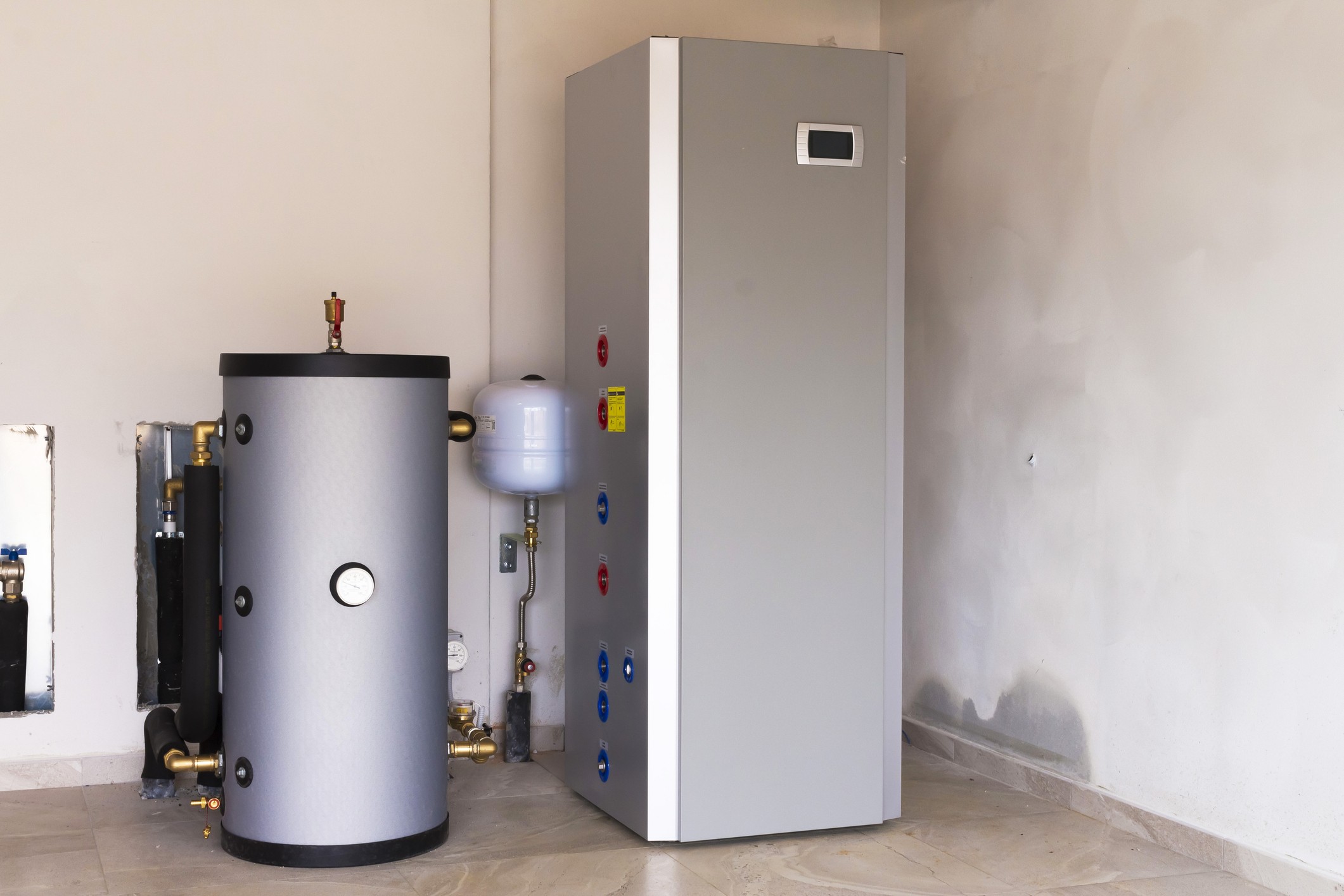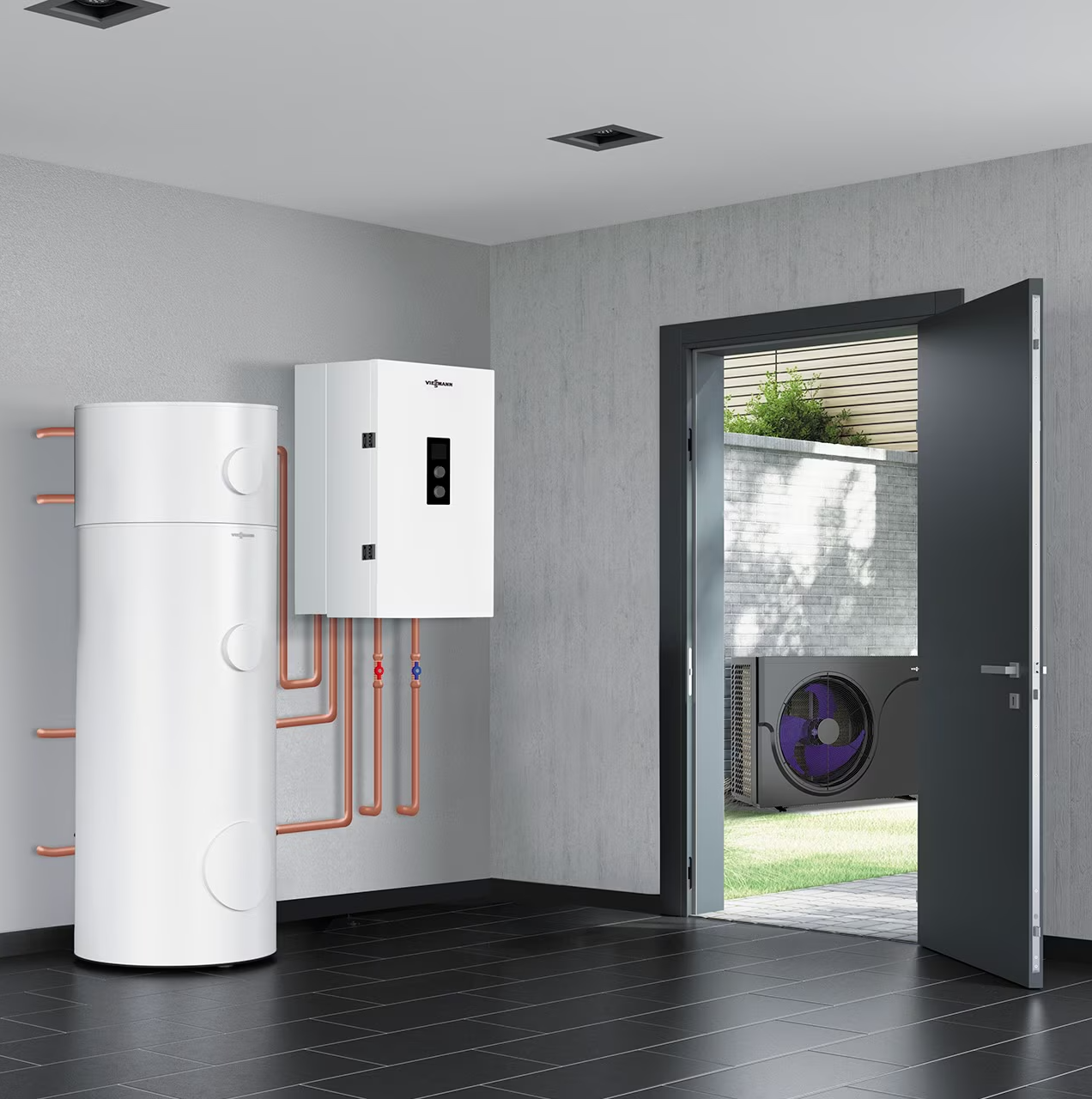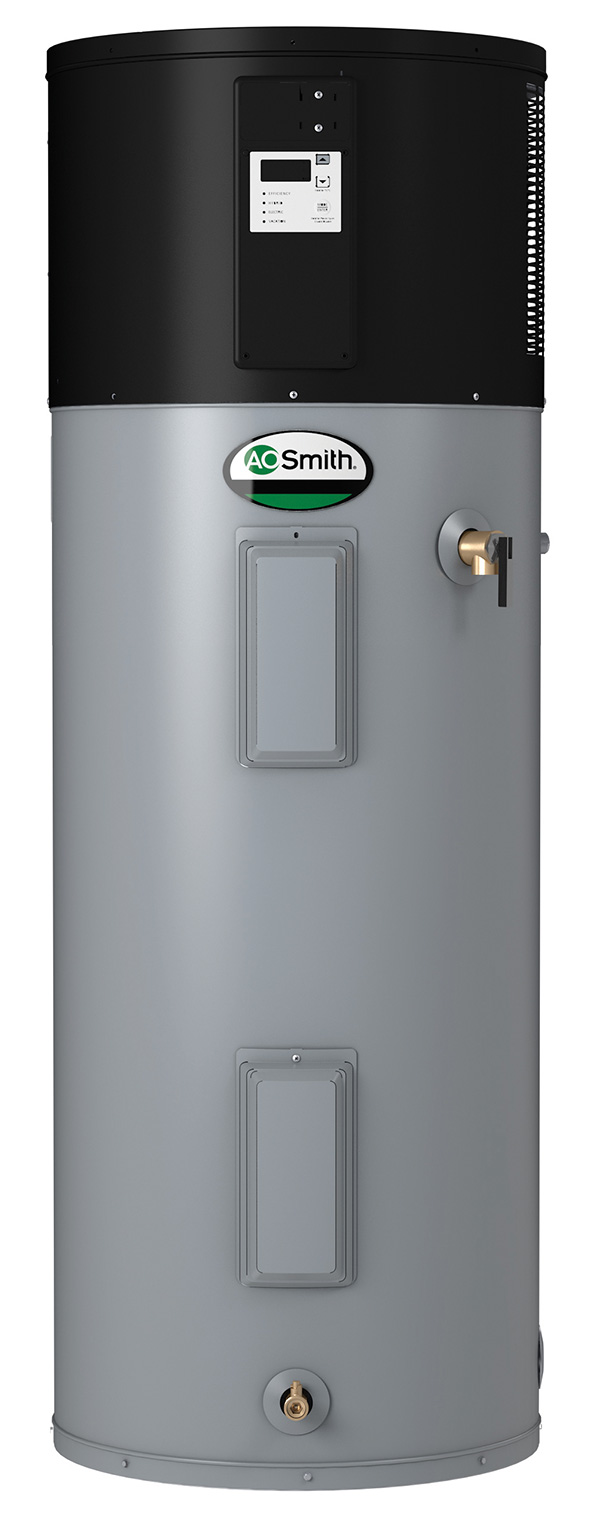
Heat pump water heaters are an energy-efficient solution for heating water in your home. By transferring heat from the surrounding air into the water, these systems can significantly reduce energy consumption compared to traditional water heaters. This environmentally friendly technology not only helps lower utility bills but also supports efforts to reduce carbon footprints.
Types of Heat Pump Water Heaters
When considering a heat pump water heater, it’s important to understand the different types available. Each type offers unique advantages and can cater to various household needs.
Split Systems
Split systems consist of separate components, typically including an outdoor heat pump unit and an indoor water storage tank. These systems are versatile and can be installed in various configurations to suit different homes. The outdoor unit extracts heat from the air and transfers it to the indoor tank, efficiently heating the water. This separation allows for greater flexibility in placement and can be ideal for homes with space constraints outside.
-
Advantages:
- Higher efficiency due to the separation of components.
- Flexibility in installation locations.
- Often quieter operation since the heat pump is outside.
-
Considerations:
- Installation can be more complex and may require professional expertise.
- Outdoor units need protection from extreme weather conditions.
Integrated Units
Integrated units combine the heat pump and water storage tank into a single appliance. This compact design makes them easier to install in homes with limited space. By integrating all components into one unit, these systems simplify installation and can be placed in various indoor locations, such as basements or utility rooms.
-
Advantages:
- Compact and space-saving design.
- Easier and quicker installation.
- Typically lower upfront installation costs.
-
Considerations:
- May have lower overall efficiency compared to split systems.
- Placement within the home may require consideration of noise levels and ventilation.
Price Range for Each Type
The cost of heat pump water heaters can vary widely depending on the brand, capacity, and efficiency. While specific prices can differ, here are some general trends:
-
Split Systems:
- Split systems generally range from moderate to high prices due to their separate components and higher efficiency.
- Basic models might start at a higher price point, with high-end models costing significantly more due to advanced features and higher capacities.
- The price range for split systems can be expected to start from a moderate level and increase significantly for premium models.
-
Integrated Units:
- Integrated units typically offer a more compact and often slightly lower-cost alternative.
- These systems usually start at a lower price point compared to split systems, making them an attractive option for budget-conscious homeowners.
- Despite their generally lower initial cost, prices can still vary based on the model and features.
Overall, the exact pricing for both split and integrated heat pump water heaters will depend on the specific model, capacity, and any additional features they offer. When considering the investment, it’s essential to factor in not only the upfront cost but also the long-term savings and benefits of improved energy efficiency (Learn more about HVAC).
Labour Costs
Understanding the labour costs involved in installing a heat pump water heater is important for budgeting your project. Several factors can influence these costs, including the complexity of the installation, the location of your home, and the accessibility of the installation site.
Complexity of Installation
The complexity of the installation process can significantly impact labour costs. If your home requires retrofitting existing systems to accommodate the new heat pump water heater, this can add to the complexity and, consequently, the cost.
Integrating the new system with other home heating solutions, such as radiant floor heating or existing HVAC systems, can also increase labour requirements. Additionally, ensuring proper ventilation and compliance with local building codes can further complicate the installation, leading to higher labour costs.
- Factors that Increase Complexity:
- Retrofitting old systems to work with the new heat pump water heater.
- Integration with other home heating or cooling systems.
- Ensuring adequate ventilation and adherence to building regulations.
- Custom modifications to fit the heat pump in specific spaces.
Location and Accessibility
The location of your home and the accessibility of the installation site also play crucial roles in determining labour costs. Homes located in areas that are difficult to reach or those that require extensive modifications to install the system will incur higher labour costs.
For example, if the installation area is in a confined space or requires significant preparation, such as moving walls or plumbing, the labour cost will be higher. On the other hand, homes with easy access to installation sites and minimal modification needs will have lower labour costs.
- Factors Influencing Location and Accessibility Costs:
- Difficulty in accessing the installation site (e.g., attics, basements).
- Need for significant modifications or preparations.
- Distance from the installation company, which may affect travel time and expenses.
- Structural challenges that require specialized skills or equipment.
Typical Labour Costs in Toronto
In Toronto, labour costs for installing a heat pump water heater can vary widely based on the factors mentioned above. While specific rates can differ, it’s essential to obtain quotes from reputable installers to get an accurate estimate tailored to your home’s needs.
Generally, labour costs in Toronto can range from moderate to high, reflecting the city’s standard of living and the demand for skilled labour.
- Getting Accurate Estimates:
- Contact multiple installers to compare quotes.
- Ensure quotes include all potential additional costs (e.g., permits, inspections).
- Ask for detailed breakdowns of labour costs to understand what is included.
To help you get started, HeatPumps.ca offers free, no-obligation quotes tailored to your specific requirements. By reaching out to us, you can ensure you’re getting a comprehensive estimate that includes all necessary costs and considerations. Our team is dedicated to providing clear, detailed quotes to help you make an informed decision about your heat pump water heater installation.
Additional Expenses
When installing a heat pump water heater, it’s important to consider additional expenses beyond the basic equipment and labor costs. These additional expenses can vary depending on the specifics of your home and the installation requirements.
Electrical Upgrades
Depending on your current electrical system, you may need to upgrade your wiring or electrical panel to accommodate the new heat pump water heater. Modern heat pump systems often require more power than older water heaters, and ensuring your electrical system can handle this load is crucial for safe and efficient operation.
Upgrading your electrical system can include:
- Wiring: Replacing outdated or insufficient wiring to meet the demands of the new system.
- Electrical Panel: Upgrading your electrical panel to increase its capacity and ensure it can support the additional load.
- Circuit Breakers: Installing new or additional circuit breakers to handle the increased electrical demand.
These upgrades can add to the overall installation cost, but they are essential for the safe and reliable operation of your new heat pump water heater.
Plumbing Modifications
Installing a heat pump water heater may require modifications to your existing plumbing. This could involve rerouting pipes or adding new connections to ensure the system operates efficiently.
Common plumbing modifications include:
- Pipe Rerouting: Adjusting the placement of existing pipes to connect to the new heat pump water heater.
- New Connections: Adding new plumbing connections to integrate the heat pump system with your home’s water supply and distribution.
- Drainage: Ensuring proper drainage for the condensate produced by the heat pump system.
These modifications can vary in complexity and cost, depending on the layout of your current plumbing system and the requirements of the new heat pump water heater.
Permits and Inspections
Permits and inspections are often necessary to comply with local building codes and regulations. These requirements ensure that your installation is safe and up to standard but can also add to the total cost of the project.
The process typically involves:
- Obtaining Permits: Applying for the necessary permits from your local building authority. This may include fees and required documentation.
- Inspections: Scheduling inspections during and after the installation to ensure compliance with all relevant codes and standards. Inspectors will check the electrical, plumbing, and overall installation to verify it meets safety and performance criteria.
Heat Pump Water Heaters vs. Traditional Water Heaters
When deciding between a heat pump water heater and a traditional water heater, it’s important to consider various factors such as initial costs, operating costs, and long-term savings.
Initial Costs
The initial cost of a heat pump water heater is typically higher than that of a traditional water heater. This higher upfront cost is due to the advanced technology and components required for heat pump systems. These systems include features such as heat exchangers, compressors, and advanced control systems that increase efficiency but also add to the initial expense.
While specific prices can vary based on brand, model, and capacity, it's generally expected that you will invest more upfront when choosing a heat pump water heater compared to a conventional gas or electric water heater.
- Heat Pump Water Heaters: Generally more expensive due to advanced technology and components.
- Traditional Water Heaters: Lower upfront cost, especially for basic electric or gas models.
Operating Costs
One of the significant advantages of heat pump water heaters is their lower operating costs. Traditional water heaters, particularly those running on electricity or gas, tend to consume more energy to maintain hot water.
In contrast, heat pump water heaters use heat transfer technology, which is more energy-efficient. This technology extracts heat from the surrounding air and transfers it to the water, using less electricity overall.
- Heat Pump Water Heaters: Lower monthly utility bills due to high energy efficiency.
- Traditional Water Heaters: Higher monthly utility bills, especially for electric models that consume more energy.
Long-term Savings
Over time, the higher initial investment in a heat pump water heater can be offset by the savings in operating costs. The energy efficiency of heat pump water heaters means that they use less electricity to heat the same amount of water, leading to substantial long-term savings.
Also, heat pump water heaters often have a longer lifespan compared to traditional water heaters, which can further contribute to overall cost savings. Many heat pump models are designed to last 10-15 years or more, whereas traditional water heaters typically last around 8-12 years.
- Heat Pump Water Heaters: Significant long-term savings due to reduced energy consumption and longer lifespan.
- Traditional Water Heaters: Potentially higher long-term costs due to higher energy usage and shorter lifespan.
Choosing a heat pump water heater, homeowners in Toronto can benefit from reduced energy consumption, lower utility bills, and a smaller environmental footprint. While the initial investment is higher, the long-term savings and environmental benefits make it a smart choice for both your wallet and the planet. Heat pump water heaters offer a reliable, energy-efficient solution that can meet your hot water needs while supporting sustainable living.
Featured Heat Pump Water Heaters
 Viessmann Vitocal 100-AW Air-to-Water Heat Pump
Viessmann Vitocal 100-AW Air-to-Water Heat Pump
The Viessmann Vitocal 100-AW is an advanced air-to-water heat pump designed to provide efficient heating and cooling for your home.
- The Vitocal 100-AW offers superior energy efficiency, reducing your energy consumption and lowering utility bills.
- This model operates quietly, ensuring minimal disruption to your household.
- Built with high-quality materials, the Vitocal 100-AW is designed for long-lasting performance and reliability.
- Utilizing renewable energy sources, this heat pump contributes to reducing your home's carbon footprint.
 Voltex Hybrid Electric Heat Pump Water Heater
Voltex Hybrid Electric Heat Pump Water Heater
The VOLTEX Hybrid is a versatile and energy-efficient solution for heating water in your home.
- The Voltex hybrid design combines a heat pump with electric heating elements, providing substantial energy savings compared to traditional water heaters.
- Available in various capacities, the Voltex can meet the hot water needs of households of all sizes.
- Equipped with smart controls, you can easily adjust settings and monitor energy usage to optimize performance.
- By reducing electricity usage, the Voltex helps lower greenhouse gas emissions, making it a green choice for environmentally conscious homeowners.
Ontario Financial Incentives and Rebates
Government Rebates
In Ontario, various government programs offer rebates and incentives to encourage the adoption of energy-efficient technologies like heat pump water heaters. These rebates can significantly reduce the initial cost of your installation. Provincial and federal programs often provide financial support to homeowners who choose environmentally friendly upgrades.
Utility Company Incentives
Many utility companies in Ontario offer incentives for installing energy-efficient appliances, including heat pump water heaters. These incentives can come in the form of rebates or discounts on your utility bills. Utility companies are motivated to support these installations as they help reduce overall energy consumption and strain on the grid.
How to Apply for These Programs
Applying for rebates and incentives typically involves a few straightforward steps:
- Research Available Programs: Start by researching the current government and utility company programs available in your area. Websites of relevant government departments and utility companies are good places to find this information.
- Meet Eligibility Requirements: Ensure you meet the eligibility requirements for each program. This might include specific criteria related to the type of heat pump water heater you are installing and the energy efficiency standards it meets.
- Gather Necessary Documentation: Collect all required documentation, such as proof of purchase, installation details, and any energy efficiency ratings. This information will be necessary when submitting your application.
- Submit Applications: Follow the application process outlined by each program. This may involve filling out forms online or mailing in your application along with the required documentation.
- Receive Rebates: Once your application is approved, you will receive your rebate or incentive. This can come in various forms, such as a direct payment, a credit on your utility bill, or a discount on future services.
Flexible Financing Plans by HeatPumps.ca
HeatPumps.ca offers flexible financing plans to help homeowners manage the cost of installing a heat pump water heater. These options are designed to make energy-efficient upgrades more accessible by spreading the payments over time. Whether you need short-term financing or longer-term plans, HeatPumps.ca has solutions to fit different budgets and financial situations.
Opting for financing through HeatPumps.ca benefits:
- Financing allows you to install a heat pump water heater without the burden of a large upfront payment. This makes it easier to upgrade to an energy-efficient system immediately and start enjoying lower energy bills.
- With tailored financing plans, you can choose the repayment terms that best suit your financial situation. This flexibility ensures that monthly payments are manageable and align with your budget.
- HeatPumps.ca’s team provides expert advice on the best financing options for your needs. They will help you navigate the process and select a plan that maximizes your financial benefits.
- Transparent financing terms mean there are no hidden fees or unexpected costs. You’ll know exactly what to expect with your repayment plan.
By choosing HeatPumps.ca for your financing needs, you can take advantage of their expertise, flexible plans, and commitment to customer satisfaction, making your transition to a more energy-efficient home smooth and affordable.
Heat Pump Water Heater Installation
Installing a heat pump water heater is an investment that can lead to significant long-term savings and environmental benefits. While the initial costs may be higher than traditional water heaters, the lower operating costs and potential financial incentives available in Ontario make it a cost-effective choice. With equipment, labour, and additional expenses considered, heat pump water heaters offer a compelling value proposition for homeowners looking to reduce their energy bills and carbon footprint.
If you're considering an upgrade to a more energy-efficient water heating solution, a heat pump water heater is an excellent option. The combination of lower operating costs, potential rebates, and environmental benefits makes it a smart choice for the future. By choosing a heat pump water heater, you can enjoy the comfort of reliable hot water while contributing to a greener planet.
Ready to make the switch to a heat pump water heater? Contact HeatPumps.ca today to explore your installation options and take advantage of flexible financing plans. Our team of experts is committed to exceeding your expectations with top-notch service and support, ensuring your new system is installed efficiently and effectively.
